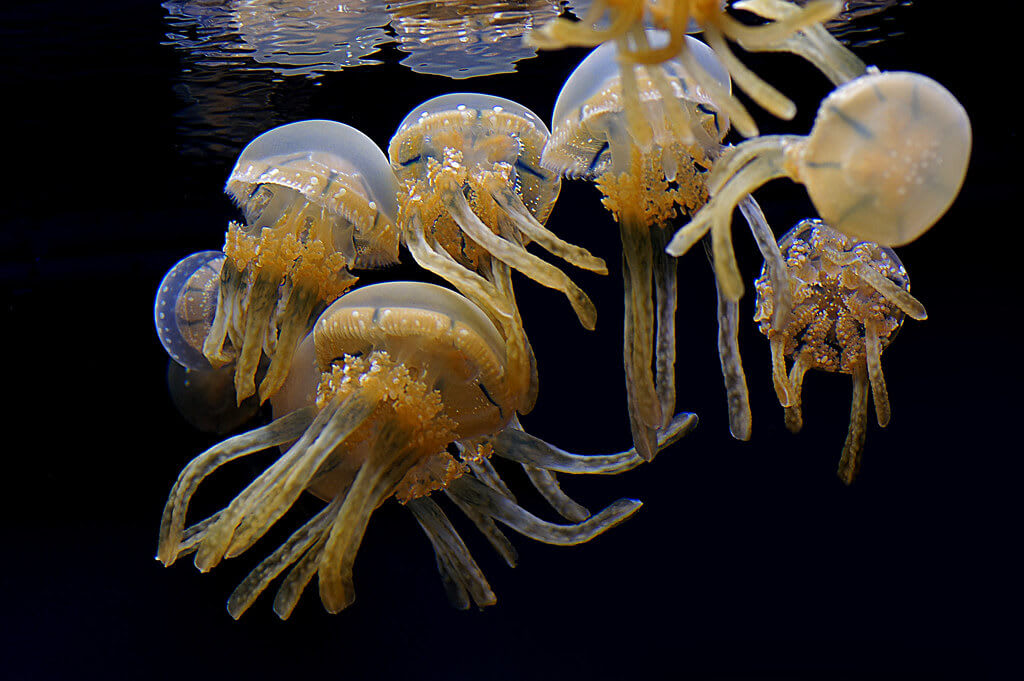The secret powers of jellyfish
Jellyfish predate dinosaurs. How have they survived so long?

Some creatures surpass the length of a blue whale, while others barely exceed the size of a grain of sand. Among them, a particular species possesses one of the deadliest venoms known to Earth, while another harbors a secret linked to remarkable advancements in biology.
For over half a billion years, these ocean-dwelling organisms have thrived amidst changing sea conditions. Jellyfish, despite their misleading name, are soft-bodied creatures belonging to a diverse group of gelatinous zooplankton—animals that drift in the ocean. With over 1,000 known species, jellyfish often cause confusion with other similar organisms.
Jellyfish feature a distinct translucent bell composed of a delicate material called mesoglea. This gel-like substance, comprising over 95% water, is held together by protein fibers, sandwiched between two layers of skin. By contracting and relaxing their bells, jellyfish propel themselves through the water.
Unlike animals with brains and spinal cords, jellyfish possess a rudimentary nervous system formed by a neural net encircling the inner margin of their bells. This enables them to sense ocean currents and the touch of other creatures. Additionally, jellyfish deviate from conventional digestive systems. These carnivorous gelatinous beings consume plankton and other small marine organisms through an opening located on the underside of their bells. Nutrients are absorbed by an inner layer of cells, while waste is expelled through their mouths.
Despite their relatively simple anatomy, jellyfish possess remarkable abilities. For instance, a certain type of box jellyfish possesses 24 eyes, allowing it to perceive colors and form images within its basic nervous system. Four of its eyes are positioned upward on stalks, granting the jellyfish a unique 360-degree view of its environment. The jellyfish's infamous sting, used for capturing prey and defense, is facilitated by specialized cells called nematocysts. Coiled like poisonous harpoons within the jellyfish's epidermis, these cells shoot out with explosive force upon contact, injecting venom into their victims. While some jellyfish stings cause minimal discomfort, others can inflict severe skin damage. The venom of certain box jellyfish species is potent enough to kill a human in less than five minutes, ranking among the world's most powerful animal poisons.
However, not all jellyfish abilities are deadly. Some species emit a green glow when agitated, thanks to a biofluorescent compound called green fluorescent protein (GFP). Scientists have isolated the gene responsible for GFP and successfully inserted it into the DNA of other cells. Acting as a biochemical beacon, GFP illuminates genetic modifications and guides the path of critical molecules. This discovery led to the Nobel Prize being awarded to six scientists in 2008 and 2014. GFP has facilitated the observation of cancer cell proliferation, Alzheimer's development, and numerous other biological processes.
Jellyfish may lay claim to being the most successful organisms on Earth. Fossil evidence indicates their presence in the seas for at least 500 million years, possibly even extending beyond 700 million years. This longevity surpasses that of any other multiorgan animal. While many marine species struggle to adapt to warmer and more acidic oceans, jellyfish thrive and potentially multiply in greater numbers. Their reproductive prowess is remarkable, with some jellyfish capable of laying up to 45,000 eggs in a single night.
Furthermore, certain jellyfish employ a survival strategy that borders on science fiction. When the immortal jellyfish falls ill, ages, or experiences stress, its cells undergo a transformation, altering their identity. The miniature bell and tentacles deteriorate and transform into an immature polyp, which produces identical clones of the parent jellyfish. As far as current knowledge goes, these creatures are the only ones to exploit such a loophole when confronted with mortality. These capabilities are astonishing for organisms composed of 95% water and predating the existence of dinosaurs.





Comments
There are no comments for this story
Be the first to respond and start the conversation.